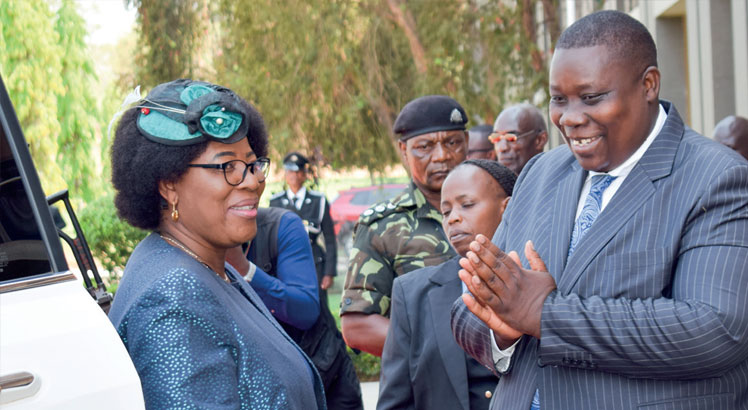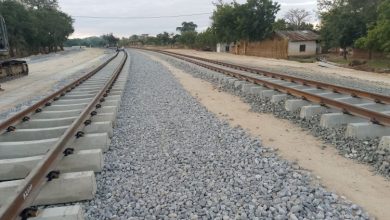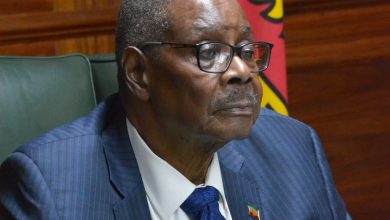APM sets tone for second coming
After a six-year absence from State House, President Peter Mutharika yesterday returned to the National Assembly to deliver his first opening address to the House in his second term, unveiling an ambitious recovery plan to stabilise Malawi’s faltering economy through reforms in agriculture, energy, education, and governance.
The address, delivered at the opening of the 52nd Session of Parliament and the Mid-Year Budget Review, painted a stark picture of the country’s economic
trajectory since his departure from office in 2020. Inflation has surged from 8.6 percent to 28.2 percent, while the national deficit

Vice-President Jane Ansah. I Jacob Nankhonya
has ballooned from K558.9 billion to K2.4 trillion. Public debt, he noted, now stands at K21.6 trillion—up from K4.1 trillion— raising serious concerns over fiscal sustainability.
“Persistent forex shortages have disrupted fuel supplies and created critical scarcities in fertilizer and medical drugs,” he said. “Prices of essential goods have soared, placing immense pressure on households.”
To address food insecurity, Mutharika announced a restructured Affordable Input Programme—renamed the Farm Input Subsidy Programme (Fisp)—targeting 1.1 million households. Fertilizer will be sold at K10,000 per bag, down from K15,000. He also pledged to restock Admarc with maize to support the four million Malawians facing hunger.
On energy, Mutharika promised to diversify power generation through hydro, solar, biomass, and regional interconnectivity. He committed to fast-tracking the 358.5MW Mpatamanga Hydropower Project and expanding the Salima Nanjoka Solar Plant to 50MW by 2026.
Fuel procurement will revert to an open tender system to ensure transparency and reduce reliance on a limited pool of suppliers. In mining, he cited projects such as Kayelekera Uranium, Kanyika Niobium, and Kasiya Rutile as central to economic transformation.
The President also reaffirmed campaign pledges, including free secondary education. Tuition, examination, development fund, and ID card fees will be abolished, with only boarding fees remaining. Each constituency will receive K5 billion annually under a reformed Constituency Development Fund, alongside K100 million each for youth and women’s business loans.
To address passport delays, Mutharika said printing will resume in Blantyre, Mzuzu, and Mangochi, with a new high-capacity printer expected to quadruple daily output.
He pledged to empower the Anti-Corruption Bureau to prosecute cases independently, declaring that corruption would not be tolerated.
Reacting to the address, Economics Association of Malawi president Bertha Bangala Chikadza welcomed the vision but raised concerns over financing. “We have heard about expenditures, but not revenues,” she said. “We hope the Ministry of Finance will clarify how these promises will be funded.”





